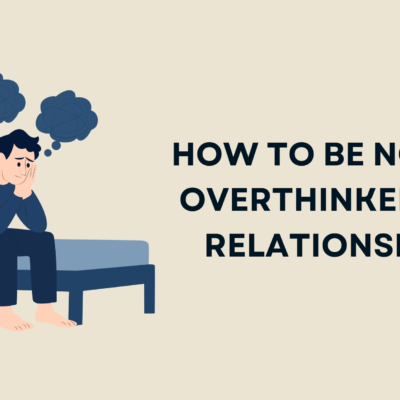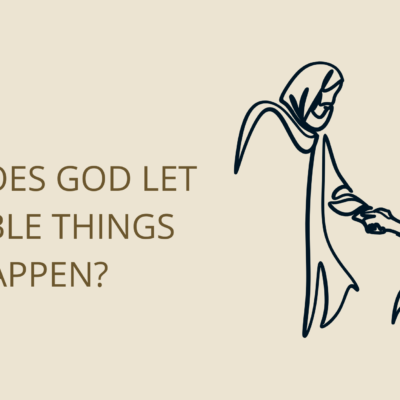How Do I Completely Surrender to God: Surrendering to God is one of the most profound, yet challenging, spiritual practices a person can embrace. It is not about weakness, defeat, or giving up one’s responsibilities in life. Rather, it is about entrusting your heart, mind, and soul to a higher power who knows you better than you know yourself. Many people struggle with this idea because surrender can feel like losing control, but in truth, it is about finding freedom—freedom from fear, doubt, and the burdens we try to carry on our own.
In this article, we will explore what it means to surrender to God, why it is so difficult, and how you can gradually and completely allow God to lead your life.
1. Understanding What Surrender to God Really Means
Before we can surrender, we must understand what it is not. Surrender is not passivity. It does not mean sitting back and letting life happen without effort. It is not abandoning your dreams, nor is it living without boundaries.
Instead, surrender is:
- Trusting God’s plan even when it doesn’t align with your expectations.
- Letting go of control over things that were never fully in your hands.
- Choosing faith over fear, knowing that God sees a bigger picture.
- Obedience to God’s guidance, not just when it’s convenient, but even when it challenges you.
- Releasing ego and pride, and accepting that God’s wisdom is higher than human understanding.
Surrender is essentially a deep act of love and trust. It is saying, “God, I may not understand everything, but I know You do. Lead me.”
2. Why Surrendering to God Feels So Hard
Most of us struggle with surrender because we are conditioned to seek control. Society praises independence, achievement, and self-sufficiency. From a young age, we are told to fight for what we want and to never give up. While ambition is not bad, it can create tension between trusting God and trusting ourselves alone.
Some reasons surrender feels difficult include:
- Fear of the unknown: Letting God lead often means stepping into uncertainty, which can feel uncomfortable.
- Ego and pride: Human beings like to feel in control, and surrender challenges that desire.
- Past wounds: If people have let you down before, it can be hard to trust—even trusting God.
- Attachment to outcomes: We want life to unfold a certain way, and letting go feels like losing our vision.
- Misunderstanding of God: Some fear that surrendering means God will take away all joy, forgetting that God desires to bless, not punish.
Acknowledging these challenges is the first step to overcoming them.
3. The Spiritual Beauty of Letting Go
When you begin to surrender to God, you experience a shift. The things that once kept you up at night don’t weigh as heavily. Decisions become clearer because you seek divine wisdom instead of carrying everything on your shoulders. Anxiety slowly transforms into peace.
The beauty of surrender lies in these truths:
- God carries your burdens: “Cast all your anxiety on Him because He cares for you.” (1 Peter 5:7)
- You gain clarity: Surrender opens your heart to God’s guidance, helping you see opportunities and lessons you may have missed.
- You deepen your relationship with God: Trust builds intimacy, and surrender strengthens your connection with Him.
- You find peace in uncertainty: Even when life feels chaotic, surrender brings assurance that you are not walking alone.
4. Steps to Completely Surrender to God
Step 1: Acknowledge Your Need for God
Surrender starts with humility. Admit that you cannot do everything on your own. This does not make you weak—it makes you wise. Recognize that your understanding is limited and that God’s perspective is infinite.
Step 2: Develop Daily Prayer and Meditation
Prayer is the bridge between your heart and God. It does not always have to be formal; it can be as simple as speaking honestly: “God, I’m struggling. Show me the way.” Meditation, on the other hand, allows you to silence the noise of the world and hear God’s whispers in your soul.
Step 3: Release Control One Step at a Time
You don’t have to surrender everything all at once. Start with one area of your life—perhaps a relationship, a fear, or a career decision. Consciously hand it over to God and remind yourself daily that He is in control.
Step 4: Trust God’s Timing
One of the hardest aspects of surrender is patience. We live in a world of instant gratification, but God works in seasons. Trust that delays are not denials, and His timing is always perfect.
Step 5: Study Sacred Scriptures
Whether you turn to the Bible, the Bhagavad Gita, the Quran, or other spiritual texts, scriptures provide wisdom on surrender. For example, Proverbs 3:5–6 says: “Trust in the Lord with all your heart and lean not on your own understanding; in all your ways submit to Him, and He will make your paths straight.”
Step 6: Practice Gratitude
Surrender is easier when you recognize God’s goodness in your life. Keep a gratitude journal, noting blessings big and small. Gratitude shifts your focus from fear to faith.
Step 7: Surround Yourself with Faithful Community
Walking with God is not meant to be a solitary journey. Surround yourself with people who also seek to live in surrender. They can remind you to stay strong when doubts creep in.
Step 8: Let Go of Attachments
We often cling to things—money, status, relationships—believing they will complete us. Surrender requires loosening that grip and trusting that God alone is your ultimate source of fulfillment.
5. Signs That You Are Truly Surrendering
How do you know you are on the right path of surrender? Look for these signs:
- You worry less and trust more.
- You are more patient with life’s timing.
- You stop forcing outcomes and instead allow life to unfold.
- You feel lighter, as though a weight has been lifted.
- You are more compassionate, forgiving, and centered.
- You experience inner peace even during external storms.
6. Overcoming Common Struggles in Surrender
Even with strong faith, moments of doubt will come. Here are ways to handle them:
- When fear rises: Repeat affirmations such as, “God is with me, I will not fear.”
- When impatience grows: Remember past times when God came through for you.
- When doubt creeps in: Read scripture or testimonies that strengthen your trust.
- When ego resists: Reflect on the peace that comes when you let God lead versus the chaos when you try to control everything.
Surrender is a practice, not a one-time decision. Each day is an opportunity to recommit.
7. The Freedom in Surrender
Perhaps the greatest paradox of surrender is that it leads not to loss, but to gain. When you let go, you discover that God provides better than you could imagine. Opportunities open, your heart softens, and you begin to live in alignment with your true purpose.
Surrendering to God is not about giving up—it’s about receiving something greater: clarity, peace, guidance, and unconditional love.
8. Final Reflection
Surrendering to God completely is a lifelong journey, not an overnight transformation. It is a daily practice of trust, prayer, release, and faith. At first, it feels unnatural, even frightening, because we are so used to controlling every detail of our lives. But as you begin to let go, you will realize that you are not falling—you are being carried.
To surrender is to rest in God’s arms and say with full confidence: “Your will, not mine, be done.”
And in that moment, you discover the truest form of freedom.






